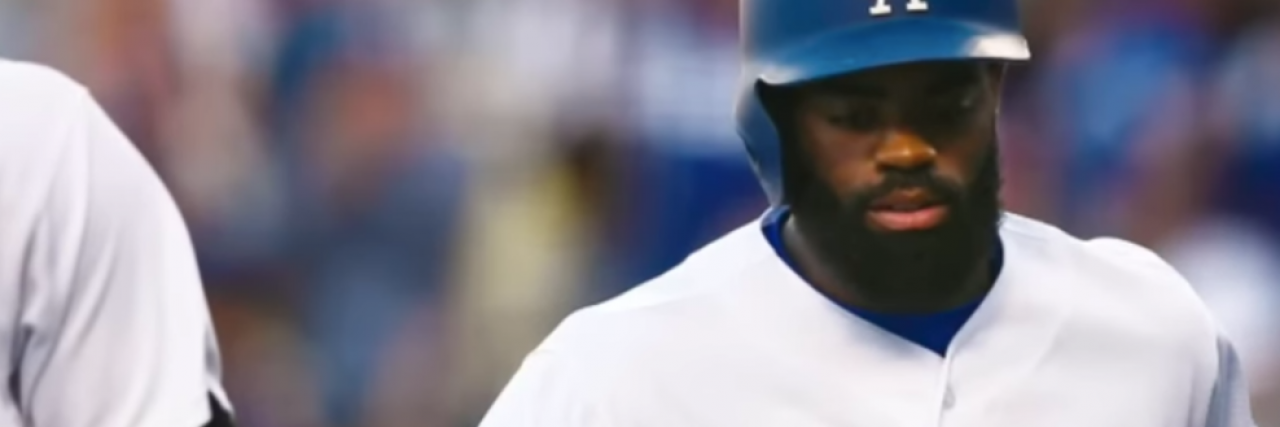The Los Angeles Dodgers announced last week—like it does nearly every year since 2018—that the organization re-signed Andrew Toles to a one-year contract. In Major League Baseball, one-year contracts are usually passing footnotes of the offseason.
Andrew Toles, however, is a different case. His contract is worth $0, and there is a zero percent chance he will play for the Dodgers this year… or next year when they likely sign him again. That’s because Toles has been retired from baseball since 2018 when he left the Dodgers after a bipolar and schizophrenia diagnosis. The Dodgers continue to renew his contract, so he can continue to receive health insurance coverage including access to mental health services.
Most news outlets typically report on this story in the classic feel-good way. For example, “Once again, Dodgers do the right thing for Andrew Toles,” and “Dodgers keep re-signing Andrew Toles for $0 so he can keep health insurance.”
However, like most internet takes on things, this story is far more complicated, nuanced, and uninspiring than at first glance. We shouldn’t necessarily applaud the Dodgers for doing something so simple and basic that it costs virtually nothing for an organization worth nearly five billion dollars. We shouldn’t vilify them, either, for not doing more. Let us explain.
Andrew Toles came to the big leagues as a 24-year-old late in 2016. The Dodgers were in the playoff race and he had a solid impact on the team, hitting above average and providing stellar defense in the outfield. In the playoffs, he shined even brighter for a team that would eventually lose to the World Series champion Chicago Cubs. In short, his first taste of Major League Baseball was a success. But his path to the big show was filled with anything but success.
During Toles’ college career, he was suspended twice for “violating team rules.” Despite those setbacks, he was drafted by the Tampa Bay Rays in the 2012.
It wouldn’t take long for his mental health issues to again creep into his professional life. He missed the majority of the season while playing in the minors for Tampa Bay in 2014, and released before the next season for disciplinary reasons. After an entire season without a team, the Los Angeles Dodgers signed Toles before the 2016 MLB season.That year, he made his MLB debut and helped lead the Dodgers to their aforementioned playoff berth. The following year, Toles tore his ACL in an early season game. After his recovery, he hardly played, eventually leaving the club in 2019 dealing with “personal matters.”
A year after leaving the Dodgers in 2019, Toles had been in at least 20 mental health clinics before becoming houseless and arrested for sleeping behind a FedEx building in Key West, Florida. This is something all too familiar with the schizophrenic community.
While less than a single percent of the population is diagnosed with schizophrenia, some studies have found that around 20% of houseless individuals, and even as high as 60%, live with schizophrenia. Those living with schizophrenia face incredibly difficult challenges in holding jobs, dealing with long-term poverty, and around a 15-year-shorter life expectancy than the average person.
In short, schizophrenia is a debilitating disease without social and familial safety nets. Its impact on family members and caregivers is immense. Alvin Toles, Andrew’s dad, has spoken about the challenges of watching his son live through schizophrenia.
For the Dodgers, it is a genuinely good gesture to keep Toles on the roster so he can access medical benefits that he needs for treatment. But it paints more of a dystopian picture of our social safety nets as a country. Where someone who could benefit from the basic human support is instead turned into a feel-good story about an organization worth $4.8 billion who is offering no other financial assistance.
It also speaks to the culture of baseball. The truth is that baseball failed Toles at every level. Instead of identifying a young man that needed mental health care, he was instead suspended, cut, and turned away.
Yes, I am very happy and supportive of the Dodgers continuing to pay for the health care of Andrew Toles. But before we applaud the Dodgers for a feel-good story about the Dodgers, let’s take a pause to remember how devastating living with schizophrenia can be for those living with the disease, and those that take care of them.
Learn more about schizophrenia or to join a schizophrenia support group on The Mighty.
Image via Dodgers Nation YouTube

